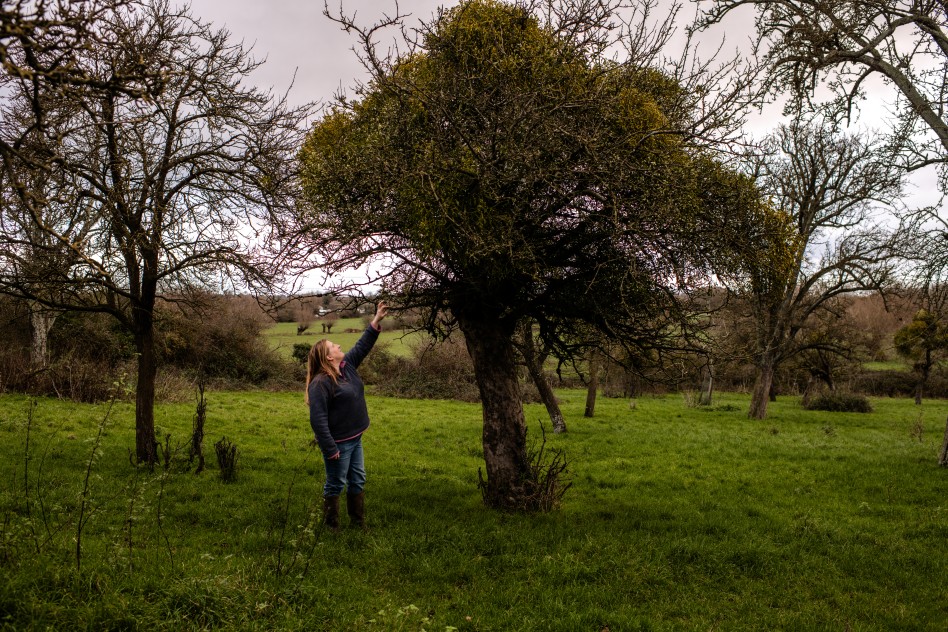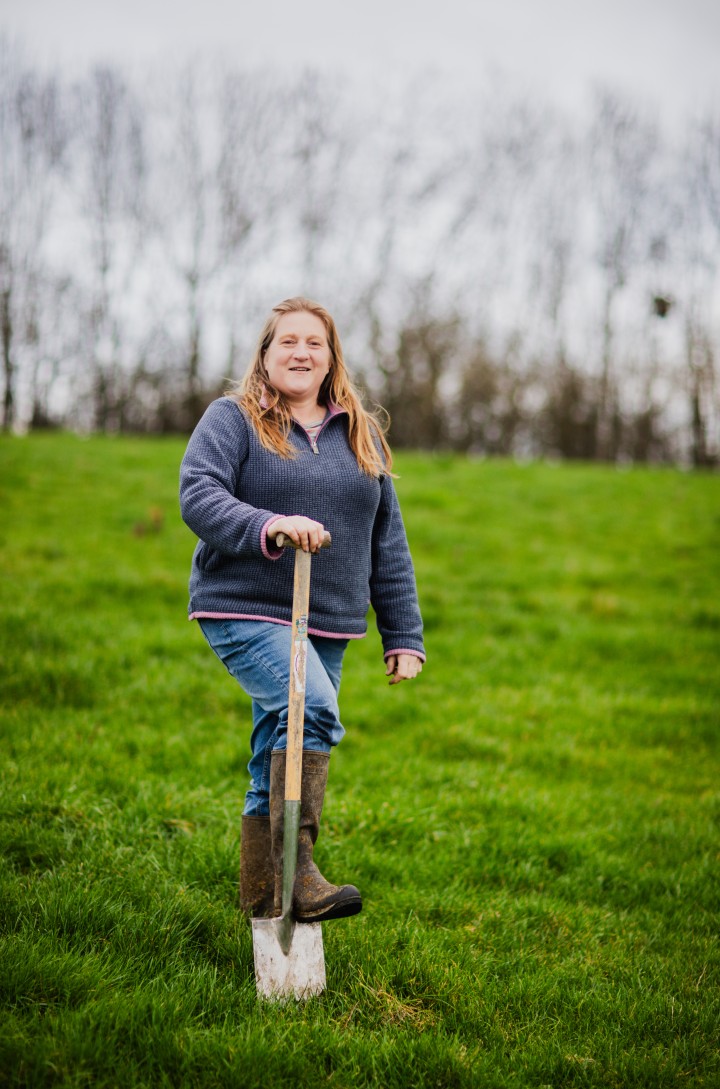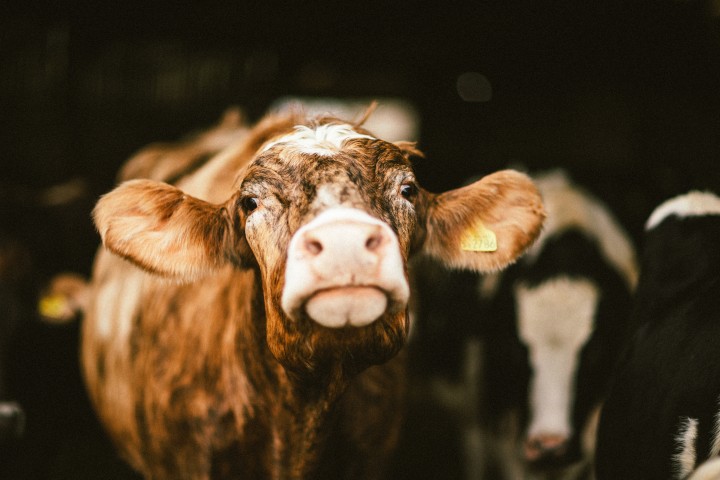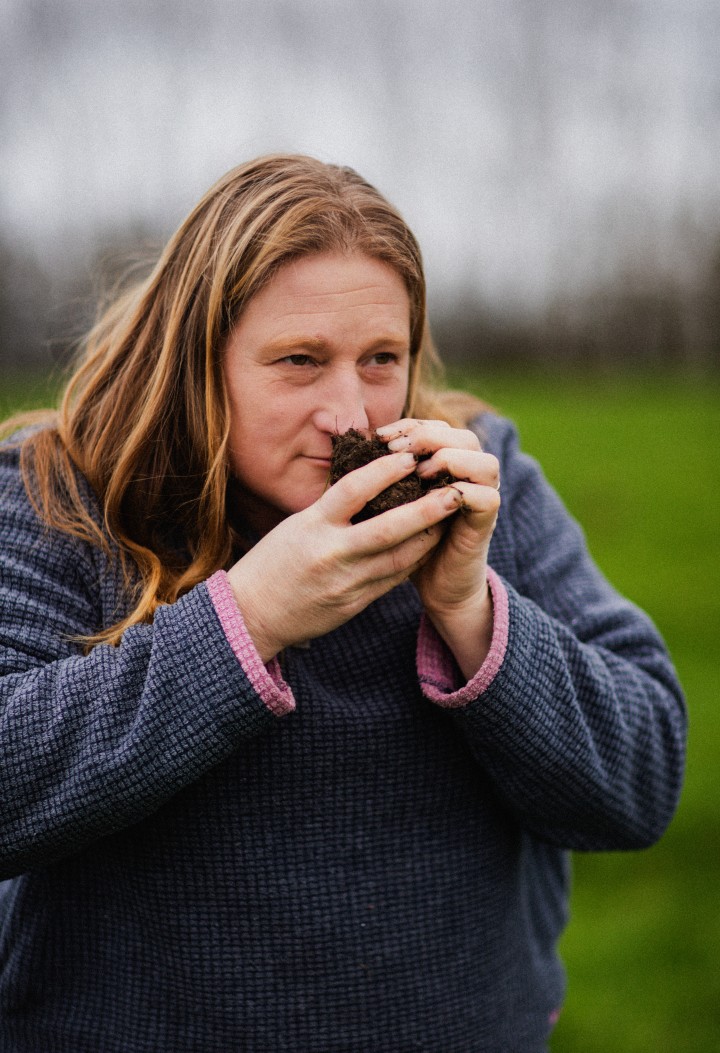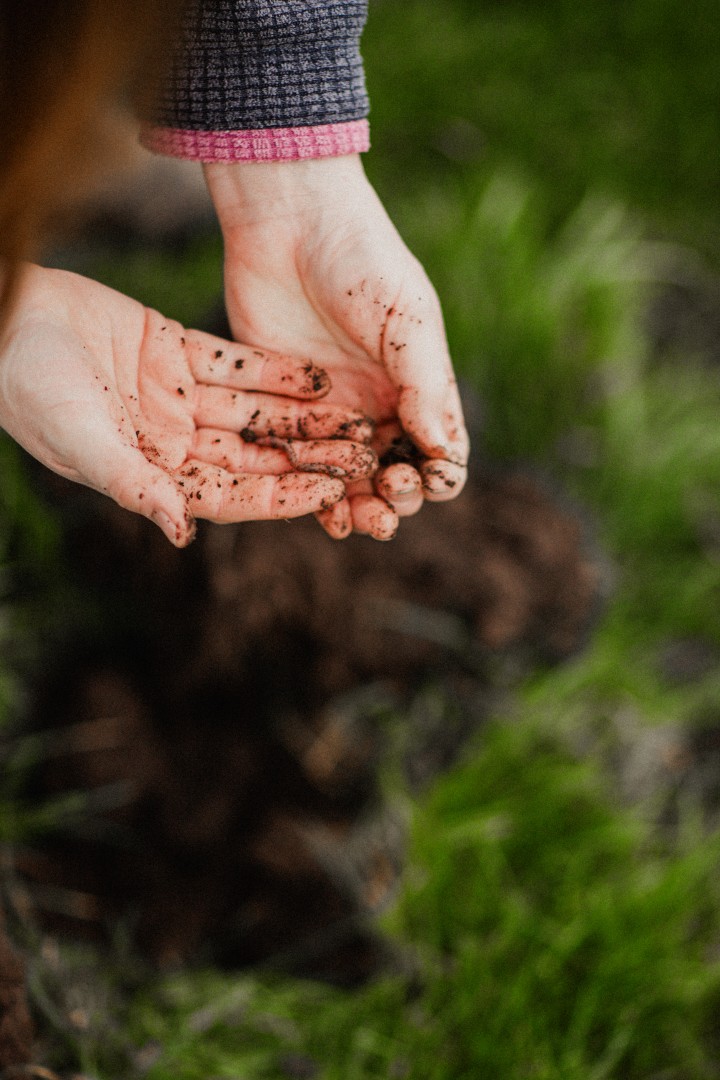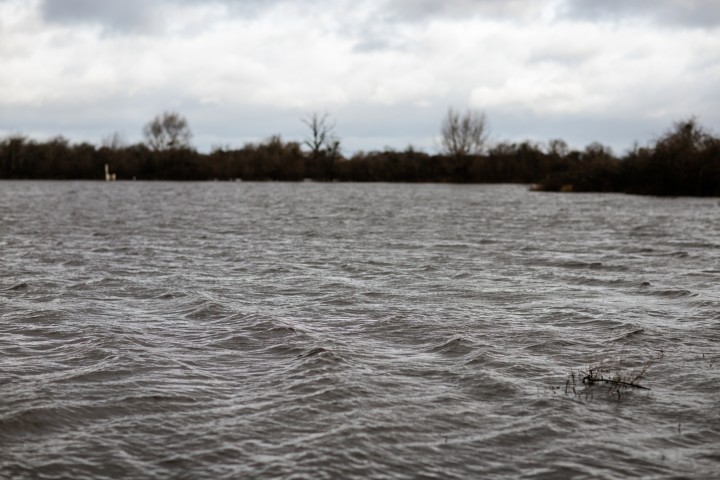Debbie Wilkins’ career has seen her explore the full spectrum of the modern food system. For years, she worked for corporate food giant Unilever as a research scientist specialising in proteins in ice creams and spreads. Now, though, she helps to run her family’s farm in Gloucestershire and has a passion for regenerative farming.
Norton Court Farm has been in Debbie’s family since her grandfather moved there in the mid-1930s. It’s a large operation, covering some 950 acres, and is almost a 50-50 split between arable land and pasture for dairy and beef cows. Debbie says that running the farm involves building on the work done by her father, Mike Smith, who she says was very much a nature-friendly farmer.
“He left grass margins all around the fields and let the hedges grow big,” she says. “He left the riverbank because the butterflies liked it. He loved seeing the wildlife and doing things to help it.”


